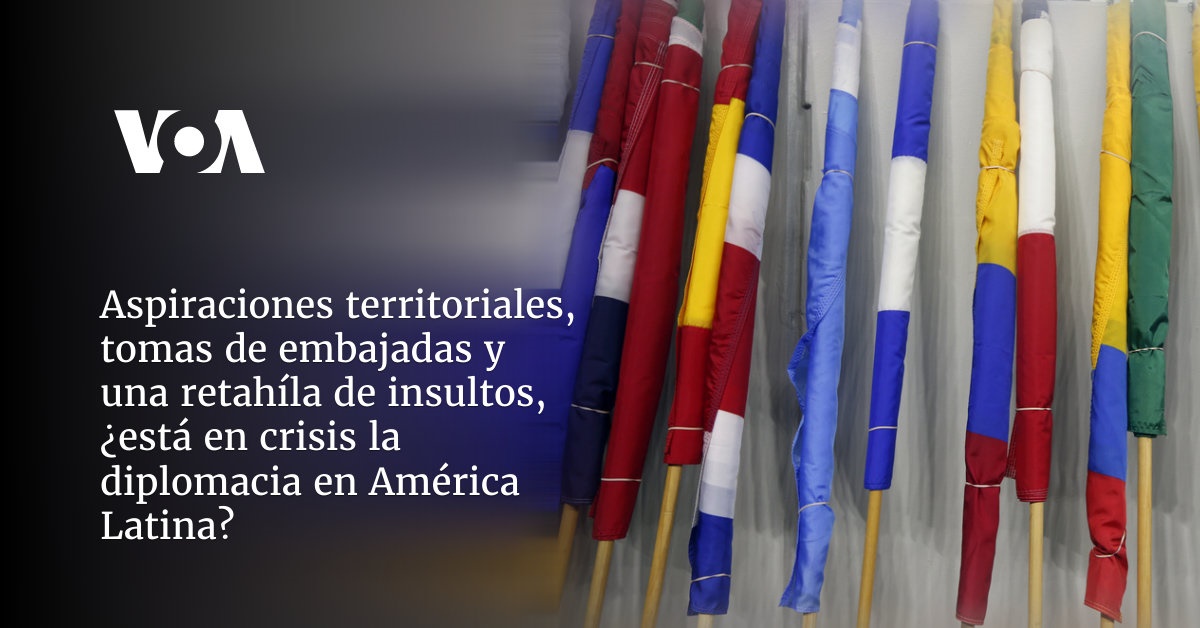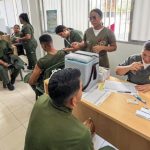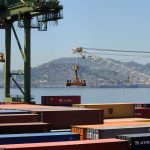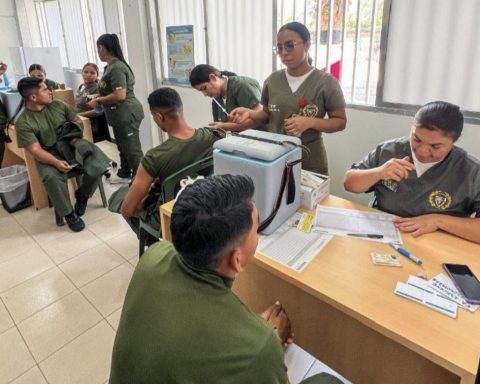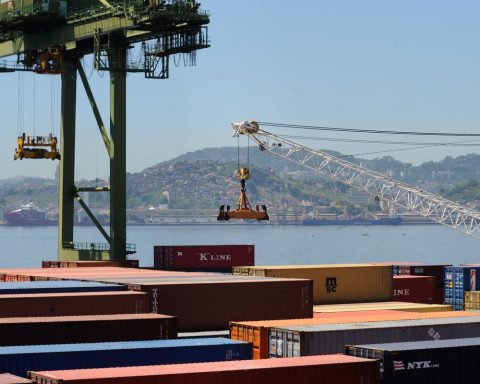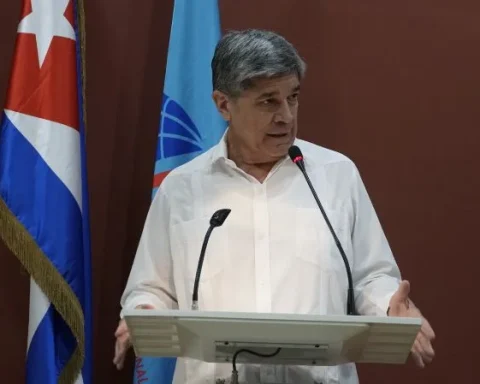In recent months, Latin America has witnessed a series of diplomatic crises that have strained the bilateral relations of some countries to extremes rarely seen.
The entry of Ecuadorian forces at the Mexican embassy and the growing tensions between Venezuela and Guyana These are just some of the examples that lead us to wonder if diplomacy in the region is in crisis.
According to analysts consulted by the Voice of America, The region is experiencing a tense moment, where confrontation prevails over cooperation and particular interests over general ones.
Cynthia Arnson, distinguished fellow and former director of the Latin America program at the Woodrow Wilson International Center for Scholars in Washington, explained in an interview with the VOA that, although there have always been conflicts in the region, such as the tensions between Peru and Ecuador, in the 1990s due to border issues, or the war between El Salvador and Honduras, in the 1970s, motivated essentially by immigration issues, now “there are tensions much sharper policies than in the recent past.”
The differentiating factors today are “not only the degree of fragmentation and polarization in the hemisphere,” but also the use of “undiplomatic” language to talk about other presidents, the academic explained.
In the history of Latin America, there are different cycles related to the configuration of hemispheric relations, said Carolina Jiménez Sandoval, president of the Washington Office on Latin American Affairs (WOLA).
“In the same way that we see cycles where there is a greater strategic option for cooperation, there are also moments where unfortunately the relations between states become much more confrontational and less cooperative, and that is the moment we are seeing now.”
Factors driving the situation
In the region, according to Arnson, pandemic recovery It is very slow and it is barely returning to previous levels; Furthermore, he adds, “the expectations and frustrations of the people are even greater and there is little satisfaction of demands.”
For Jiménez Sandoval, the current cycle of diplomatic tensions is due, first of all, to the fact that in recent years there has been an increase in “more personalistic and, in the worst case, more authoritarian leadership.”
And when this happens, “the role of democratic institutions that have a variety of functions is diminished” such as, for example, chancelleries, and presidents “become the spokespersons for their own foreign policy.”
In this sense, Leandro Lima, Senior Political Risk Analyst at Control Risks, agrees that the root of these diplomatic conflicts “lies above all in the complexity of the internal context in each of the countries.”
In the case of Ecuador, the country that caused the breaking off diplomatic relations with Mexico after the irruption of Ecuadorian Military Forces at the embassy in Quito, where he was isolated former Ecuadorian vice president Jorge Glas, the WOLA expert believed that President Rafael Noboa, “preferred to launch into an enormous and almost unanimous international condemnation” to show his population, “just before a consultative referendum, that he is willing to use a heavy hand in all aspects of his leadership” prioritizing “his internal support” over domestic political interests.
And it is a situation that, according to the expert, has to do “with the chaos that has settled in Ecuador the last few months and also with the urgent responses that President Noboa has to provide to the citizens.”
An opinion shared by Professor Arnson, who pointed out that “the use of the ‘external enemy’ to try to unite the population of a country has been a very long-standing tradition, not only in Latin America.”
According to the teacher, for example, in the historic dispute between Venezuela and Guyana For Essequibo, a territory of about 160,000 square kilometers rich in natural resources, the president of Venezuela, Nicolás Maduro, “is using (the situation) to stir up feelings of nationalism and to divert the attention of the Venezuelan people.”
Arnson, who is also an associate professor at Johns Hopkins University SAIS, says that the situation may also be due to the emergence of social networks and “the new communication measures that have amplified this type of sensationalist rhetoric to increase the emotionality of the followers.” That, he observed, did not exist 15 years ago.
And, in this sense, the leaders’ statements “seem to be motivated not only by issues of foreign relations, but also to position themselves in front of domestic audiences.”
And the ideologies?
Despite cases like that of the president of Argentina, Javier Milei, who goes against the leftist leadership of the region and has sometimes expressed himself crudely about his counterparts in the region, there are other cases where the dynamics are not necessarily ideological.
According to Jiménez Sandoval, the region is also going through a “reconsideration” that has more to do with interests or affinities between leaderships and what is seen today are “quite trans-ideological” authoritarianisms, even “more than they have been in the past.” past”.
This is the case, for example, of impasse between Chile and Venezuelagenerated by the murder in Chilean territory of a former lieutenant who opposed the government of Nicolás Maduro and a political refugee in Chile, where other frictions have also occurred over immigration issues.
“They are very different left-wing governments. Gabriel Boric is a more modern and democratic left, while the government of Nicolás Maduro is an older left, with very strong concepts of anti-Americanism and also with very questionable antidemocratic practices,” Lima added.
The impact is “tremendous”
For the WOLA spokesperson, the impact “is tremendous” and will be reflected from the basics to the medium and long-term aspects. In the case of the breakdown of diplomatic relations between Ecuador and Mexico, among the immediate effects are experienced by Ecuadorian migrants, for example, who with a consulate closed, will no longer be able to do their paperwork or vote.
But, in addition, explains Jiménez Sandoval, the great challenges of the region are transnational – forced migration, the fight against organized crime and drug trafficking, climate change, among many others -, “which require the cooperation of the hemispheric community. ”.
However, when relationships are more focused on confrontation than cooperation, the possibility of seeking joint solutions is reduced, affecting the daily lives of citizens.
For example, in Ecuador, a country hit by organized crime and drug trafficking, with the presence of Mexican cartels, “it would be in their best interest to cooperate, share intelligence and strategies to fight organized crime.” And at this moment, with the breakdown of relations, it is impossible, he added.
Opinion shared by Lima, pointing out that public security is one of the most important challenges and, in the case of combating Aragua TrainFor example, without cooperation between countries that suffer from the presence of the criminal group – such as Chile – and Venezuela, it is very difficult to combat it.
Another aspect that has effects is the economic one. For the Controls Risks expert, Latin American governments have very ambitious agendas and citizens also have very high expectations, “but the capacity of governments is very limited”, making cooperation necessary.
Experts agree that conflicts and diplomatic tensions will continue, in principle, because their roots persist and, according to Jiménez Sandoval, if democratic transitions do not begin to be seen in the region, for example, “the Nicaraguan or Venezuelan case ”, there will always be actors in the international community “more willing than others to break with basic norms” and to confront.
Furthermore, he considers, if the “emerging authoritarianisms continue, where narratives, the use of social networks and the decline of political debate is also important for the consolidation of these leaderships,” the fights will continue.
Or, in the case of the dispute over the Essequibo, Jiménez Sandoval pointed out, although he believes that an armed conflict will not occur, “no citizen in the region should have to live or want to live with that latent threat.”
For the Johns Hopkins University professor, there is “no end to this type of rhetoric from very populist leaders with major internal and domestic problems” and it is a situation “to be regretted” because it is another example “of the inability to countries to seek common goals and act in a consensual manner to confront common problems.”
Connect with the Voice of America! Subscribe to our channels Youtube, WhatsApp and to newsletter. Turn on notifications and follow us on Facebook, x and instagram.
